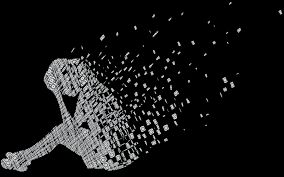Suffering From Depression?
Jul 16, 2019 • 12 views
Depression is an extremely complex form of mental disease which is the result of a variety of reasons. The causes behind depression are not fully understood but it is thought to be a complex combination of genetic, biological, environmental and psychosocial factors. In a research paper by Guy M. Goodwin, depression is told to occur in association with virtually all the other psychiatric and physical diagnoses.
Depression seems to be a more common occurance amongst women than men.
Major depressive disorder is sometimes referred to as the “common cold” of psychiatric illnesses as it can co-exist with and be triggered by a variety of issues.

Common symptoms of depression
Feelings of helplessness and hopelessness that is having a feeling that you can do nothing for the betterment of your situation.
Loss of interest in daily activities and ability to feel joy and pleasure.
Appetite or weight changes- a change of more than 5% of body weight in a month.
Changes in sleeping pattern-Either insomnia, especially waking in the early hours of the morning or oversleeping.
Feeling agitated, restless, or even violent. Your tolerance level becomes lower.
Loss of energy- Feeling fatigued, sluggish, and physically drained.
Strong feelings of worthlessness or guilt.
Trouble in focusing, making decisions, or remembering things.
Increase in physical pains such as headaches, back pain and aching muscles.
Depression often varies according to age and gender showing different symptoms for different age group and sex.
Depressed men are less likely to acknowledge feelings of hopelessness. They tend to complain about fatigue, irritability, sleep problems and loss of interest in work. They are more likely to experience symptoms such as anger and aggression.
Women usually experience depression symptoms such as pronounced feelings of guilt, excessive sleeping, overeating and weight gain. Depression in women also gets impacted by hormonal factors during menstruation, pregnancy and menopause.
The most noticeable symptoms in depressed teens are- Irritability, anger, agitation and not sadness. They may also go through certain physical torments like headaches, stomach aches or other physical pains.
Depressed older adults tend to experience more physical rather than the emotional signs and symptoms of depression: like fatigue, unexplained aches and pains and memory problems.
Depression has a complicated relationship with other medical conditions, mainly the chronic ones. Depression can be a risk factor or an early symptom of a medical condition and the vice versa that is medical conditions are risk factors or symptoms of depression is also possible.
First aid for depression-
Listen to the sufferer but do not be judgemental.
Ensure them of their recovery and encourage appropriate professional help.
Encourage self help and every other support strategies possible.
Self treatment with nature or eco therapy is also a good option.
Practice meditation.
